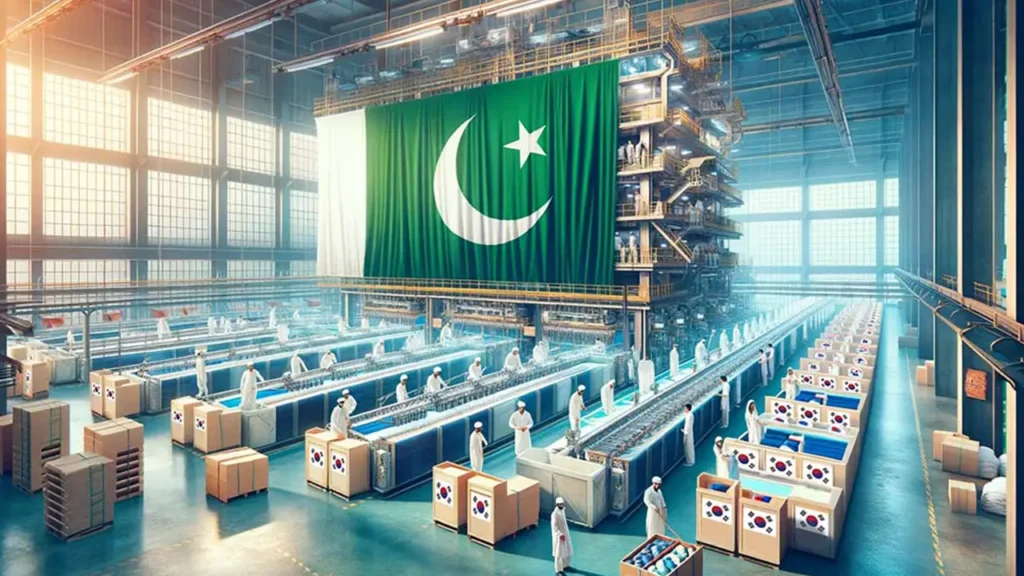- Web
- Feb 05, 2026
Industrial activity picks up as autos and garments drive recovery
-

- Web Desk
- Sep 27, 2025

ISLAMABAD: Pakistan’s large-scale manufacturing grew nearly 9 percent in July, boosted by strong growth in autos, garments, cement and petroleum.
Pakistan’s industrial sector posted an 8.99 percent growth in July 2025, with automobiles, garments and cement leading the recovery.
Large-scale manufacturing jumps nearly 9 percent in July
Pakistan’s large-scale manufacturing (LSM) sector recorded a strong recovery in July 2025, posting an 8.99 percent year-on-year growth, driven by robust gains in automobiles, garments, cement, and petroleum products.
According to provisional data released by the Pakistan Bureau of Statistics (PBS), the Quantum Index of Manufacturing (QIM) stood at 115.68 in July, compared to 106.14 in the same month last year. On a month-on-month basis, the index rose 2.6 percent from June’s 112.75, signalling a steady upward trend in industrial activity.
Autos, garments, cement take the lead
Among the major contributors, the automobile sector emerged as the star performer with a staggering 57.8 percent jump in production compared to July 2024. The sector added 1.33 percentage points to the overall growth, reflecting improved demand and a possible recovery in supply chains.
Garment production also surged by 24.79 percent, contributing 3.8 percentage points to the overall increase, while cement output climbed 18.75 percent, supported by ongoing construction activity. Petroleum products, including refined fuels, recorded 13.18 percent growth, adding another 1.01 percentage points to the LSM index.
Furniture manufacturing, which had struggled last year, staged a remarkable turnaround with 86.79 percent growth, while other transport equipment jumped 45.8 percent. Rubber products, electrical equipment, and pharmaceuticals also posted gains.
Declines in fertilisers, iron & steel
Not all industries shared in the momentum. Fertiliser production slipped by 1.6 percent, while iron and steel products shrank by 3.69 percent. The chemical sector, including basic and specialised chemical products, reported a 2.64 percent decline. Beverages were also hit, recording a 6.19 percent fall, dragging overall growth down by 0.39 percentage points.
Machinery and equipment manufacturing was among the hardest-hit sectors, dropping 22.77 percent year-on-year, reflecting weak investment activity. Fabricated metals and wood products also contracted slightly.
Food and textiles steady, mixed picture across sectors
The food industry, which carries a significant weight in the LSM basket, expanded by 6.63 percent, while textiles grew only marginally at 0.04 percent compared to last year. Paper and board production rose 15.01 percent, signalling stronger demand from packaging and publishing sectors.
The performance reflects a mixed but largely positive picture of Pakistan’s industrial sector, with high growth in consumer-driven industries like garments and automobiles, while traditional heavy industries such as iron, steel, and machinery continue to lag.
Industrial outlook
Analysts say the latest figures are encouraging for Pakistan’s economic outlook, as industrial recovery is critical for job creation and revenue generation. However, they caution that sustaining momentum will depend on consistent energy supply, stable input costs, and stronger domestic as well as export demand.
The PBS noted that the main drivers of July’s growth included garments, automobiles, cement, petroleum products, paper and board, and furniture. Meanwhile, the contraction in beverages, chemicals, fertilisers, and iron and steel limited the overall gains.
The July numbers also show the resilience of consumer-related sectors, hinting at a possible rebound in domestic demand despite persistent inflationary pressures. If the trend continues, the manufacturing sector could provide some much-needed support to Pakistan’s broader economic recovery during the current fiscal year.
Read next: Short-term inflation eases slightly as chicken, onions become cheaper




